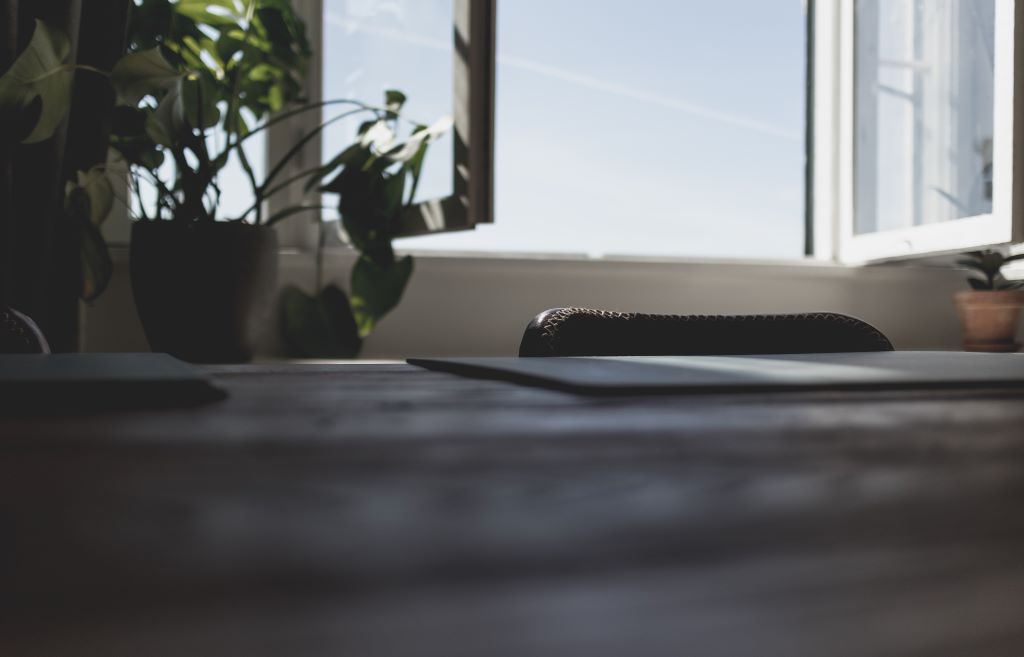How to Feng Shui your office for productivity

If you’ve ever had one of those days where you get to work and can’t seem to focus, you’re not alone. It’s been reported that, despite working the longest hours of any country in Europe, the British workforce only manages to do around 3 hours of productive work a day.
A study found that open plan offices - which most of us work in - are making us less productive and less collaborative, proving that it’s often the environment that leaves us feeling uninspired.
Interior designer and Feng Shui expert Liza Evans has worked with several corporate clients on their office spaces, turning them from flat and stuffy rooms that people dread spending the day in to inspiring spaces that are actually conducive to creativity.
If you thought the idea of Feng Shui was just for the spiritually-minded, think again - many businesses are now turning to experts such as Liza to make their working environments as effective as possible.
So what is Feng Shui?
Contrary to popular belief, Feng Shui is about way more than simply moving your plant to the opposite side of the desk in a bid to trick your brain into thinking your work space is different.
“Literally translated, Feng Shui means wind and water. It is the ancient Eastern art of placement, of living in harmony with our natural and built environment. Feng Shui aims to enhance sheng chi (positive energy) so our immediate surroundings, both internally and externally, can be as supportive as possible,” explains Liza.
“The principles of Feng Shui can be used alone, but when the theory is combined with solid design principles the results are amazing. Clients feel a deeper connection to their spaces, and life is often smoother and more enjoyable when their environment supports their short and long-term goals. “
So when this concept is implemented in a work environment, the results can be quite remarkable - better communication, a sense of wellbeing and boosted morale being just a few of the benefits employees notice. Liza notes that companies often come to her when they’re looking to entice more customers into their business or reduce sick days.
So how to put this into practice at work when you’re not in a position to order an entire office refit?
There are a few simple techniques, Liza explains, that anyone can put into practice at work today:
Sort out your desk space
You know the saying - ‘tidy space, tidy mind.’ It’s much easier to focus when you have less mess in your eye line. From a Feng Shui perspective, explains Liza, keeping your desk clutter-free means “sheng chi (positive energy) can circulate more freely.”
Go green
“Keeping us connected to nature has been proven to reduce the number of sick days people have, enhance creativity, performance, and productivity” says Liza, “so incorporate healthy plants in communal areas and where possible keep a small plant or a bunch of flowers on your desk.”
Research by the University of Exeter found that productivity is increased by 15% when greenery is introduced into the workplace. Of course, the effects wear off if you neglect them though - Liza recommends replacing them as soon as they die.
Balance the Yin and Yang
The Chinese philosophy of Yin and Yang relates to the feelings of feminine (yin) and masculine (yang) energies. If your office space is angular and filled with heavy, dark furniture, balance it out by adding some pretty, bright flowers and artwork filled with soft lines and muted colours. Ensuring each element is in perfect balance and harmony brings more serenity, balance and harmony to your own work.
Let the light in
If you’re feeling low on energy, it could be because you’re not getting enough natural light, suggests Liza. Take your laptop and go and sit by a window for a while or, if your work isn’t the kind you can easily move around, take a break and get out of the depressing florescent glow of the office lights.
Liza Evans is an international Interior Designer and Feng Shui expert who works with both individuals and businesses. Find out more about her work here: http://www.lizaevans.com
If you enjoyed reading this article, you might like Need to be more productive? Take more Breaks.



 Tara
Tara





